Articles
Issue Reviewers
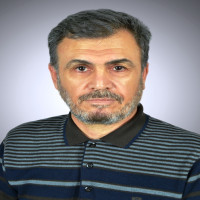

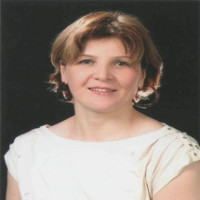
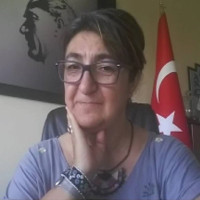
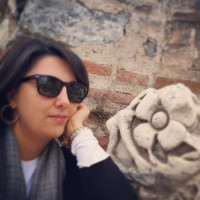
 0000-0002-9047-8416
0000-0002-9047-8416
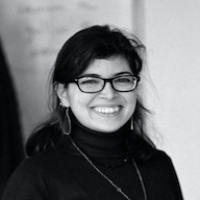
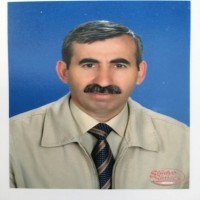
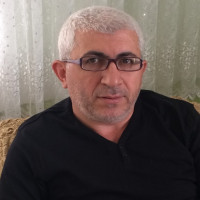



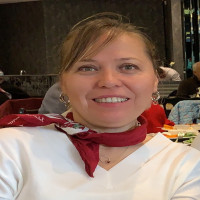
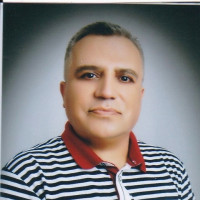

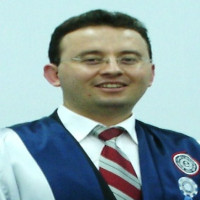
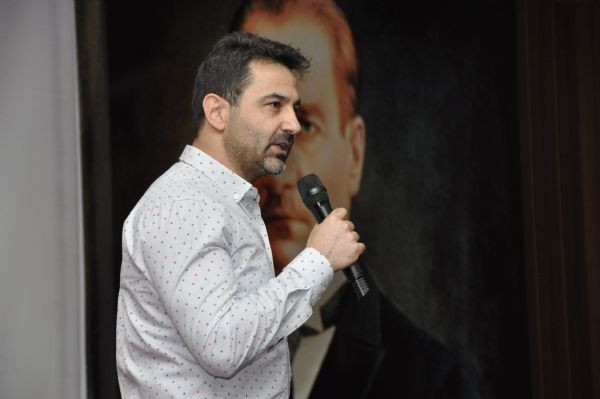

Aim & Scope
Uludağ University Faculty of Arts and Sciences Journal of Social Sciences (UUFASJSS) accepts the human factor in a direction from the local to the universal and aims to publish scientific research in the broadest boundary within its subjects.
Uludağ University Faculty of Arts and Sciences Journal of Social Sciences (UUFASJSS) publishes original research articles and reviews in the science fields of Ancient History, Applied Psychology, Archaeology, Art History, Ataturk’s Principles and the History of the Republic, Classical Turkish Literature, Clinical Psychology, Comparative Literature, Contemporary Turkish Dialects and Literatures, Contemporary World History, Developmental Psychology, General Turkish History, History of the Middle Ages, Human and Economic Geography, Information and Document Management, Learning-Cognitive-Bio-Experimental Psychology, Linguistics, Modern History, Modern Turkish Literature, New Age History, Ottoman Institutions and Civilization, Philosophy, Physical Geography, Social Psychology, Sociology, Translation Studies, Turkish Folk Literature, Turkish Folklore, Turkish Language, World Languages and Literatures.
Author Guidelines
1. Articles can be written in Turkish or English. The topic must be suited to the content, written with bold and capital letters in 12 font size and be centered. Under the topic, there must be an abstract written in both Turkish and English with 10 font size, italic and single row pitch, consisting of 100-150 words. Five key words must be placed right below the abstract. These key words must be inclusive and coherent with the content. An English title must be with the English abstract. Additionally, for Turkish articles, an extended abstract of the work that is 500-750 words long, written in English and covering the purpose, problem, method, findings and conclusion of the work must be written. This extended abstract must be structured with paragraphs and placed to the page after the source section.
2. The name and the surname of the author should be written as right aligned under the topic of the article. Title, affiliation (University, Faculty, and Department, city and country), e-mail address and ORCID number of the author should be written below the first page with a correlated asterisk near the surname.
3. Except the title of the article, only the first letters of the words should be written with capital letters in in-text topics.
4. At the end of the paper a statement of contribution rate, conflicts of interests, a statement of contribution (if there is one) must be included.
5. Articles must be written by using Microsoft Office Word. Any extra font type must be sent with appendix. The specifications of the page setup must be the following:
6. References to the sources must be given within the text, and footnotes, if necessary, must be put below the page with font size 10. References in the text must include the surname(s) of the author(s), publication date and page number. Page numbers are not necessary for paraphrasing. Direct quotes longer than 50 words should be written in 10-point font, starting 2 cm from the left, in a paragraph format, without quotation marks. All the references given in the text must be listed in a separate page at the end of the article under the “Source” topic. They should be listed precisely in alphabetical order. This list cannot include any work that the author does not used in the text.
Source must be prepared according to APA 7 standard.
In-text references should be written between parentheses: (Şahin, 2012: 6).
In papers with two authors, surnames of the two authors must be written with a “&” between: (Yılmaz & Öztürk, 2010: 86)
While referencing works with multiple authors, only the name of the first author should be written: (Gülsevin et al., 2006: 23).
If the author’s name is used within the text, only the publication date and page number should be provided in parenthesis: (2009: 419)
If an author has multiple publications on the same year; a, b, c etc should be used after the publication date: (Çiftçi, 2006a; Çiftçi, 2006b).
References from secondary sources should be cited as well. Köprülü (1926, from Çelik 1998)
7. References
References must be listed at the end of the work, according to alphabetical order of the surnames of their writers. Surnames must be written before the names.
Book
Single Author:
Tanpınar, A. H. (1997). 19’uncu asır Türk edebiyatı tarihi. Çağlayan Kitabevi.
Double Author:
Altun, Ş. & Sarıoğlu, C. (2006). Türk popüler tarihinde ilkler. Alfa Yayınları.
Multiple Author:
İmer, K., Kocaman, A., Özsoy, A. S. (2011). Dilbilim sözlüğü. Boğaziçi Üniversitesi Yayınevi.
Article
Single Author:
Şahin, H. (2016). Bursa’da yazılmış tıp metinlerinde ağız özelliklerine dair. Uludağ Üniversitesi Fen-Edebiyat Fakültesi Sosyal Bilimler Dergisi, 17(31), 291-298.
Double Author:
Şahin, D. & Ünsal N. D. (2018). Ontario Kraliyet Müzesi’nde sergilenen Edessa kökenli bir grup mozaik pano. Journal of Mosaic Research, (11), 239-256.
Multiple Author:
Alıcı, T., Kayır, H., Aygören, M. O., Sağlam, E, Uzbay, İ. T. (2005). Discriminative stimulus properties of tianeptine. Psychopharmacology, (185), 446-451.
Presentation
Üstünova, K. (2014). Birleşik ekler üzerine. In H. Şahin, İ. Karahancı (Eds.), VI. Uluslararası Dünya Dili Türkçe Sempozyumu Bildirileri II (pp. 889-906), Bursa Büyükşehir Belediyesi Yayınları.
Translated Book
Barthes, R. (2016). Göstergebilimsel serüven. (Trans: M. Rifat, S. Rifat), Yapı Kredi Yayınları.
Book Chapter
Sınar Uğurlu, A. (2020). Mahcupluk İmtihanı adlı oyunda geleneksel Türk tiyatrosunun etkileri. In N. Karaca, M. Başpınar (Eds.), Vefatının 100. Yılında Ömer Seyfettin Kitabı (pp. 49-70), Osmangazi Belediyesi Yayınları.
Encyclopedic Entry
Uzunçarşılı, İ. H. (1997). Mehmed I. In İslâm Ansiklopedisi (pp. 496-506), 7, Millî Eğitim Bakanlığı Yayınları.
Thesis
Aydın, H. (2016). Türkiye Türkçesinde dilbilgisel zaman - Oktay Akbal öyküleri örneği. (Unpublished Doctoral thesis). Bursa: Uludağ Üniversitesi Sosyal Bilimler Enstitüsü.
Manuscript
Âsım. Zeyl-i zübdetü'l-eş‘âr. Millet Kütüphanesi. A. Emirî Efendi. No. 1326. vr. 45a.
Online Source
Kılavuz, A. S. (2020, Aralık 20). Rektör’ün mesajı. http://www.uludag.edu.tr/konu/view/6/RektorMesaji
Geçinme endeksi (ücretliler) elektronik veri dağıtım sistemi. (2009, May 2). http://evds.tcmb.gov.tr/
Paper Due To Publication
Ercan, Ö. (2014). Divan şiirini hukukî bakış açısı ile değerlendirmek: suç ve ceza. Uludağ Üniversitesi Fen-Edebiyat Fakültesi Sosyal Bilimler Dergisi. The paper is due to publication.
Ethical Principles and Publication Policy
The publication of an article in a peer-reviewed journal is an essential building block in the development of a coherent and respected network of knowledge. It is a direct reflection of the quality of the work of the authors and the institutions that support them. Peer-reviewed articles support and embody the scientific method. It is therefore important to agree upon standards of expected ethical behavior for all parties involved in the act of publishing: the author, the journal editor, the peer reviewer, and the publisher.
3. The author has to comply with his research and publication. Articles to be sent to the Journal must not have been previously published elsewhere or sent to another journal for evaluation. The ethical and legal responsibility of publishing the articles submitted to the journal in another scientific environment or sending them for evaluation rests strictly with the author. Proceedings that were presented at scientific meetings but not yet published can be accepted as long as the author states this situation. The legal and ethical responsibilities solely belong to the author. Oral presentations could be published as long as it is stated, they are in full text and they were not published in any other medium.
4. While evaluating the articles sent to the journal, attention is paid to the diversity of scientific fields, institutions and authors. Therefore, if necessary, some articles may not be evaluated with a justification.
5. The articles that are written according to the rules must be submitted online via http://dergipark.org.tr/.
Price Policy
No fees are charged from the authors or readers for the articles accepted and published as a result of referee reviews.

This work is licensed under a Creative Commons Attribution 4.0 International License.

